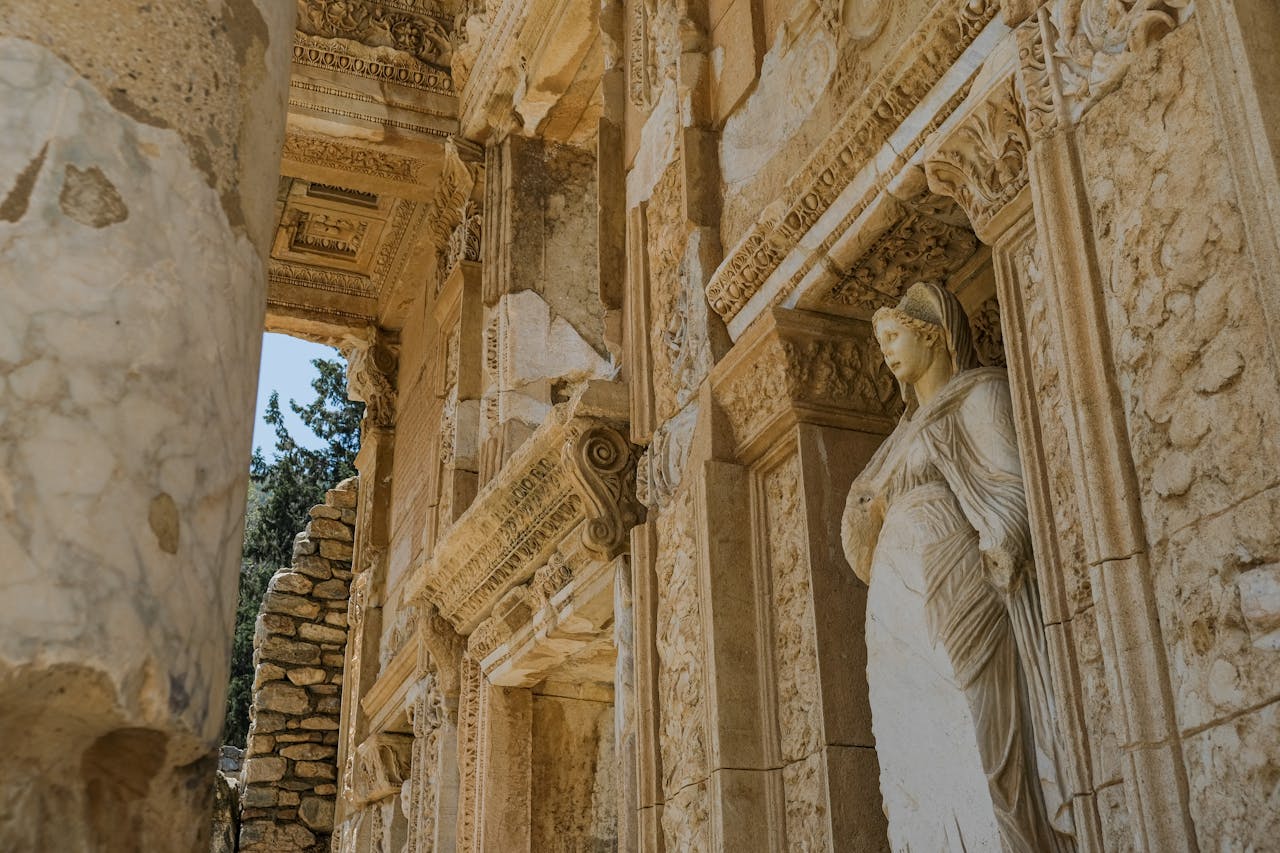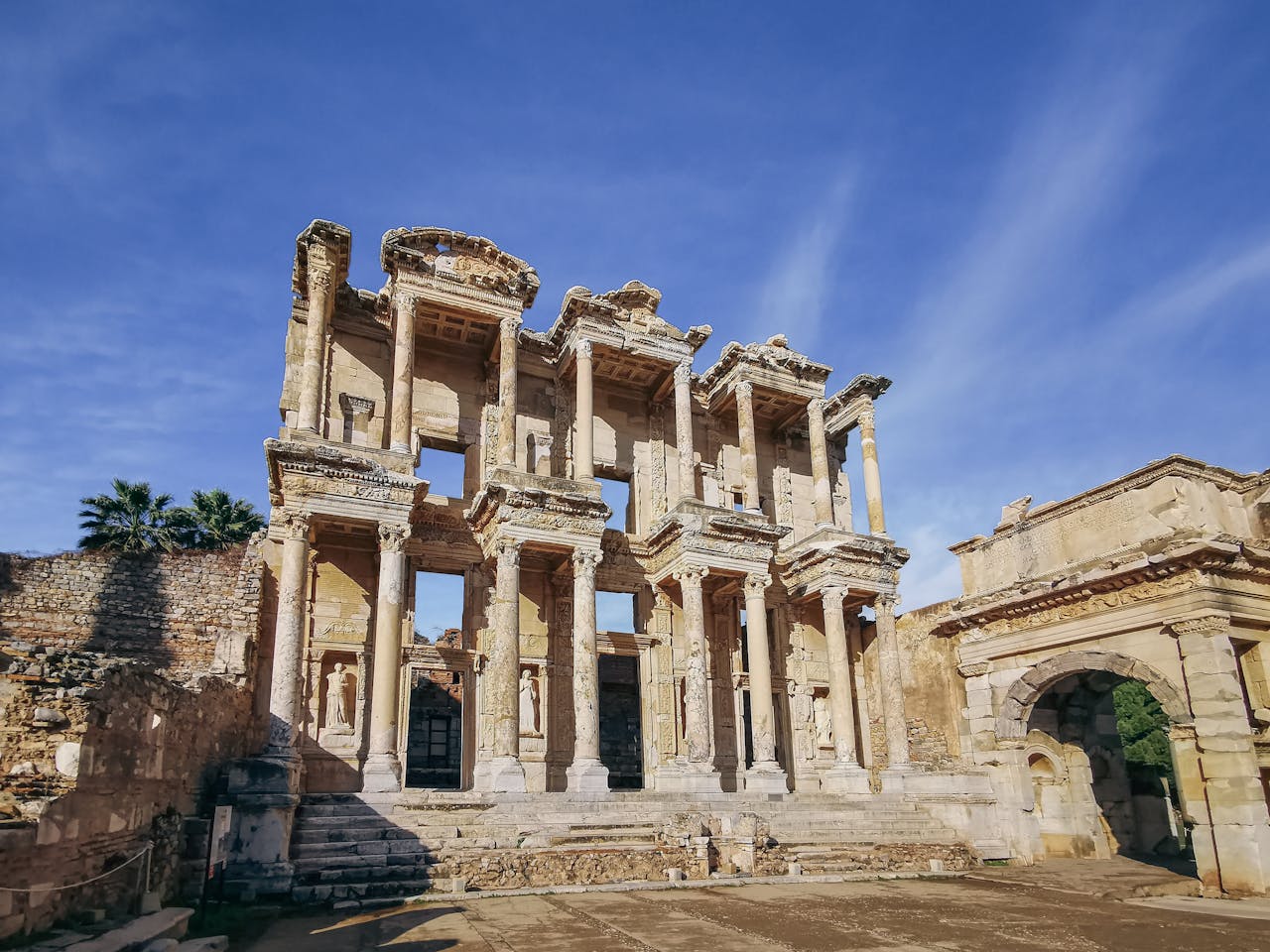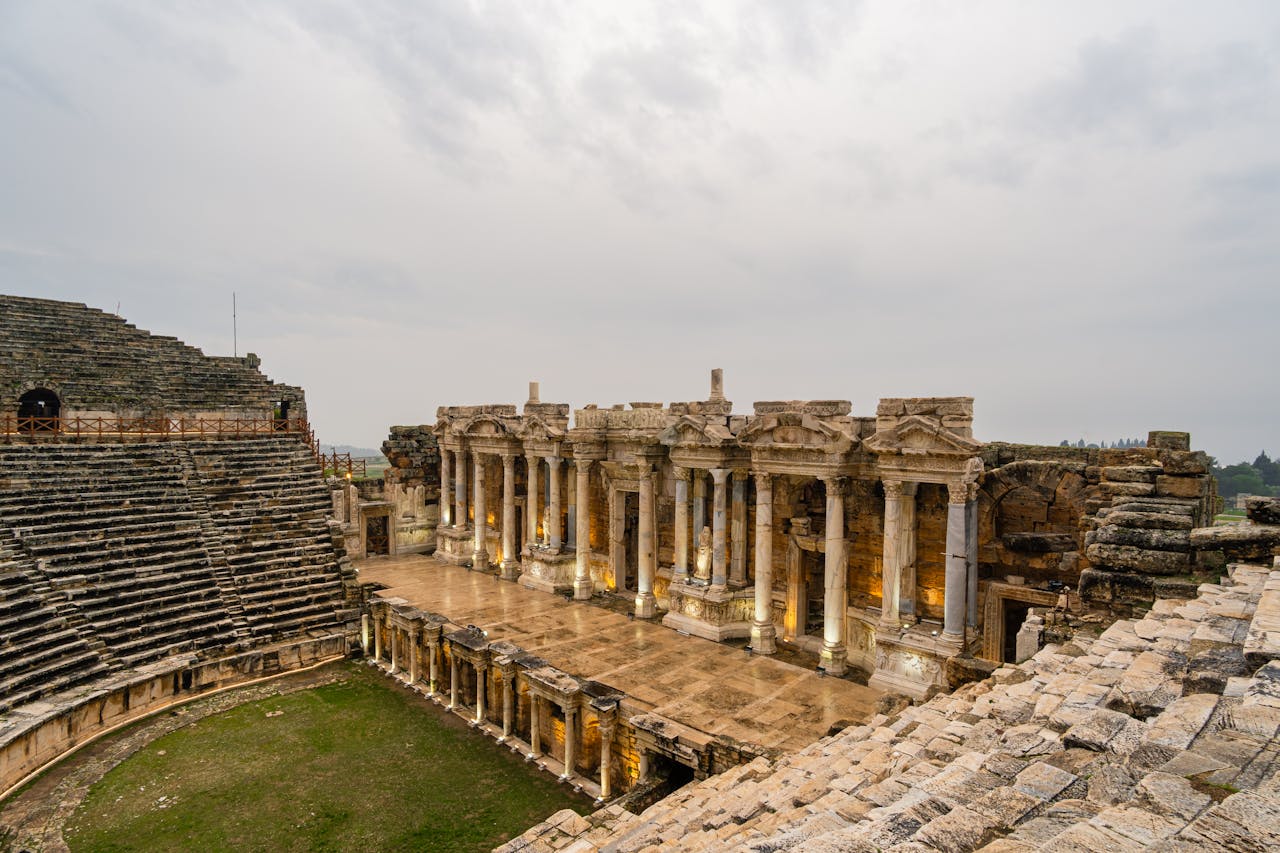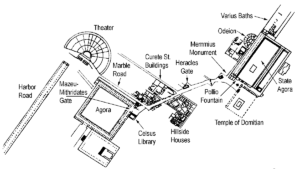Places to Visit
Ephesus, one of the most well-preserved ancient cities in the world, offers a unique journey through time. The Library of Celsus is one of the most famous structures in Ephesus, originally built to house 12,000 scrolls and serve as a monumental tomb. The Temple of Artemis, though now in ruins, was once one of the Seven Wonders of the Ancient World. The Great Theater of Ephesus, capable of holding 25,000 spectators, is still used for performances today. Other notable sites include the Temple of Hadrian, the Odeon, and the Terrace Houses, which provide a glimpse into the daily lives of Ephesus’s wealthy residents.

Historical Significance
Ephesus was an ancient Greek city that later became a major Roman metropolis. Founded in the 10th century BC, it became one of the twelve cities of the Ionian League. Ephesus was famous for the Temple of Artemis, one of the largest temples of the ancient world. The city was also a major center of early Christianity; the Apostle Paul preached here, and the Gospel of John is believed to have been written in Ephesus. The city’s decline began after the harbor silted up, and it was eventually abandoned in the late Middle Ages. Today, Ephesus stands as a testament to the grandeur of ancient civilizations.
Geographical Features
Ephesus is located near the modern town of Selçuk, in the Izmir Province of Turkey. The city was originally built on the coast, but due to the silting of the harbor by the Cayster River, it now lies inland. The area around Ephesus is characterized by fertile plains, which supported the city’s agricultural economy in ancient times. The region’s Mediterranean climate features hot, dry summers and mild, wet winters, making it an ideal location for settlement in antiquity. The surrounding hills provide a scenic backdrop to the ruins, adding to the site’s allure for visitors.





